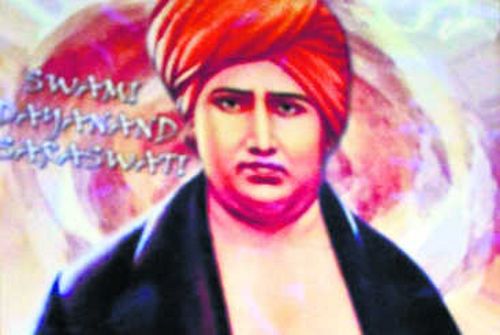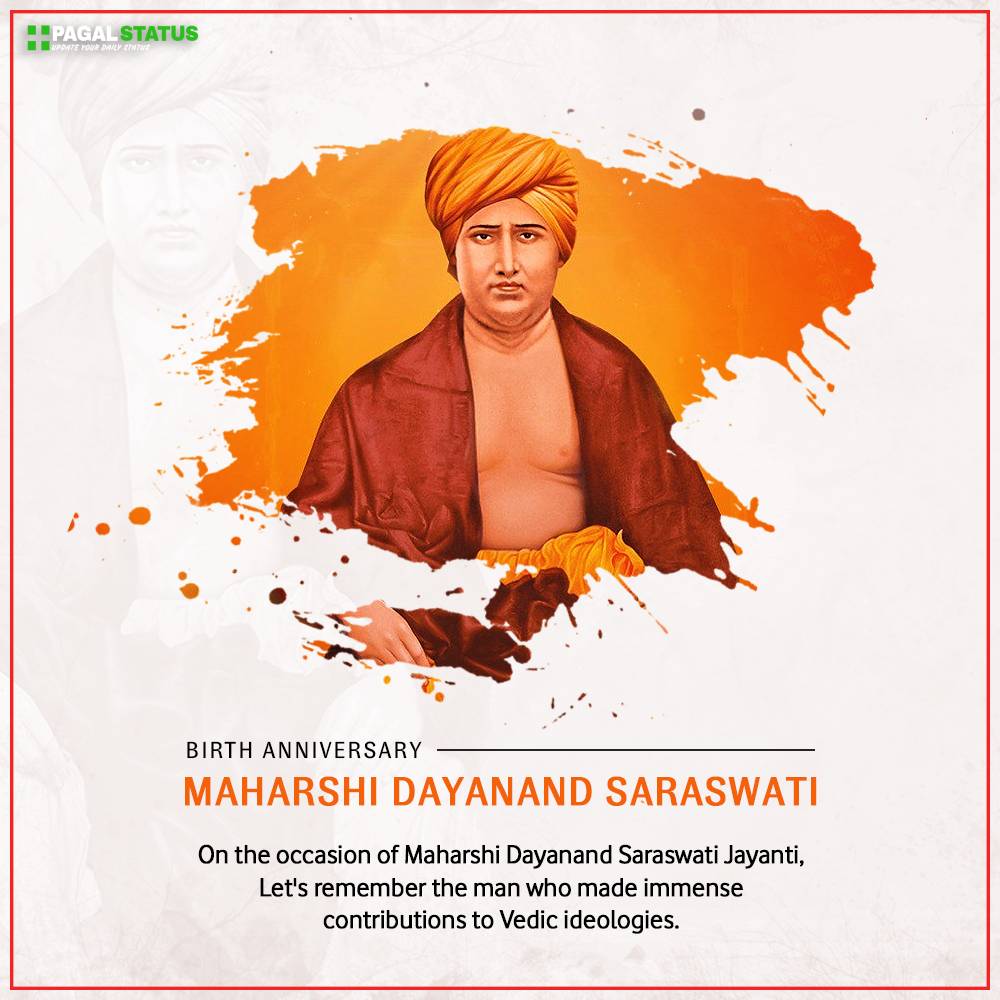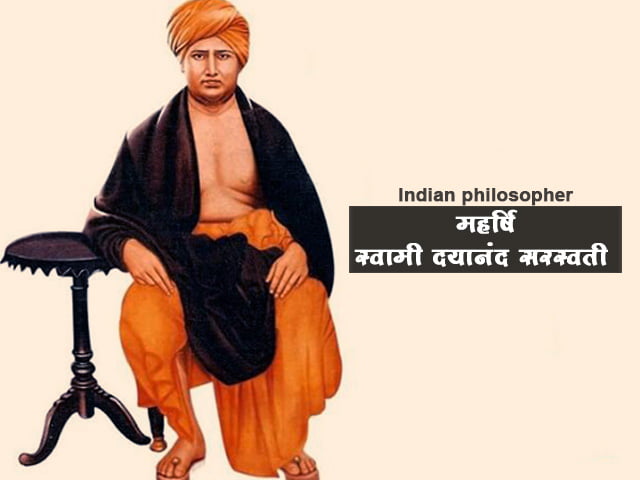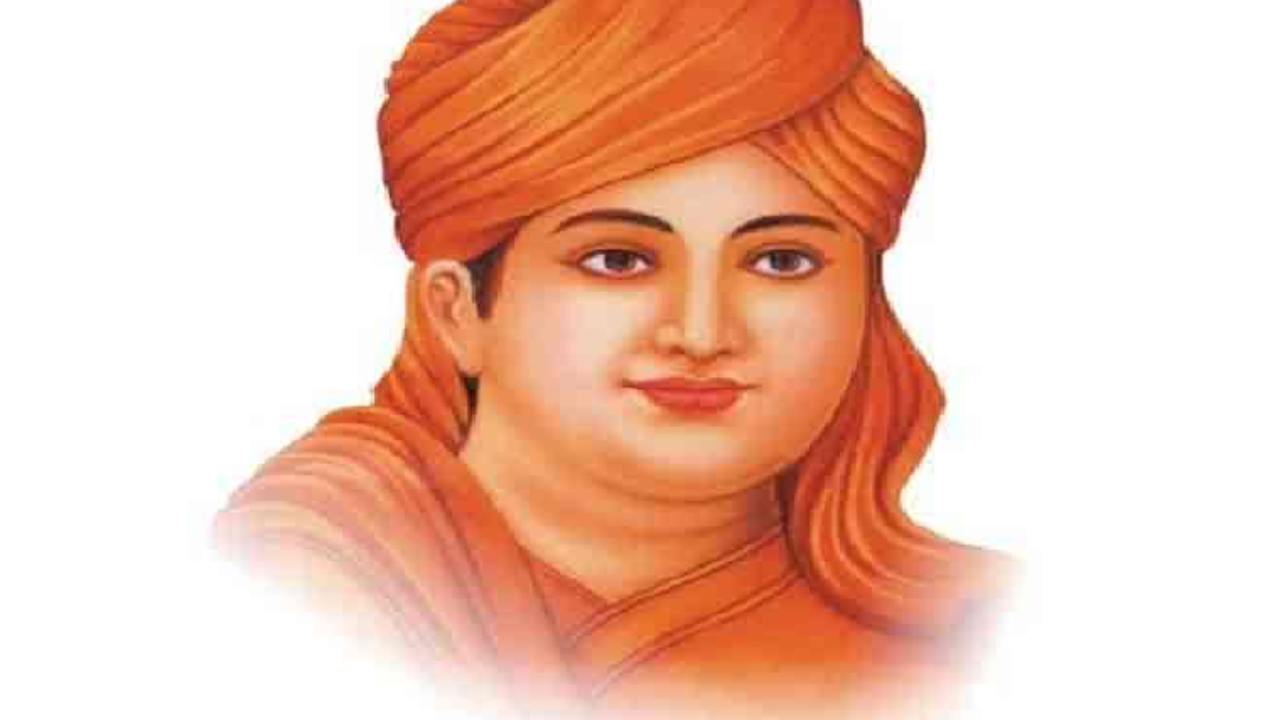Swami Dayanand Saraswati was a Hindu spiritual leader and reformer who lived in the 19th century. He was born in 1824 in the village of Tankara, Gujarat, India. His family was of the Brahmin caste, which was traditionally associated with scholarship and spiritual pursuits.
From a young age, Dayanand showed a strong interest in religion and spirituality. He was deeply influenced by the teachings of the Vedas, the ancient sacred texts of Hinduism, and was determined to understand their true meaning. He spent much of his time studying the Vedas and other religious texts, and became a proficient Sanskrit scholar.
In 1846, at the age of 22, Dayanand renounced his family and worldly possessions to become a sannyasi, or Hindu monk. He travelled throughout India, studying with various spiritual masters and teaching the Vedas to others. He developed a strong following among the people he met, and became known for his eloquent and persuasive speeches on the importance of upholding traditional Hindu values and practices.
Dayanand was particularly concerned with the social and religious issues of his time. He believed that many Hindu practices had become corrupt and needed to be reformed. He argued that the caste system, which was an integral part of Hindu society, was unjust and needed to be abolished. He also believed that the idol worship that was prevalent in Hinduism was a corrupting influence, and argued for a return to the more pure form of monotheistic worship taught in the Vedas.
In 1875, Dayanand founded the Arya Samaj, a Hindu reform movement that sought to promote the teachings of the Vedas and bring about social and religious reform. The movement quickly gained a large following, and Dayanand became a leading figure in the Hindu reform movement of the late 19th century.
Throughout his life, Dayanand faced fierce opposition from traditionalists who opposed his reforms. He was frequently the target of violence and persecution, and was even imprisoned for his beliefs. However, he remained steadfast in his commitment to bringing about positive change in society, and his teachings and ideas continue to influence Hinduism to this day.
Swami Dayanand Saraswati was a deeply spiritual and influential figure who played a crucial role in the modernisation and reform of Hinduism. His teachings and ideas continue to inspire and guide Hindus around the world, and his legacy as a spiritual leader and reformer will continue to be remembered for generations to come.
Swami Dayananda Saraswati: Early Life, Arya Samaj & Reforms

Swamiji took up the responsibility of reviving the chariot festival of Sri Mahalingaswami temple, Thiruvidaimaruthur in Thanjavur district of Tamil Nadu. The Samaj directs its members to condemn ritualistic practices like idol worship, pilgrimage and bathing in holy rivers, animal sacrifice, offering in temples, sponsoring priesthood etc. But the lion man's glimpse might be drawn out with diligent labour. Though Dayananda was criticized as a conservative and sectarian activist who claimed the superiority of Hinduism over and above of all other religions, yet he was one of the makers of modern India. Vedic View and Way of Life. They should free themselves from prejudice, accept the universal truths — that is those truths that are to be found alike in all religions and are of universal application-,reject all things in which the various religions differ and treat each other lovingly, it will be greatly to the advantage of the world.
When Dayananda got enlightenment

Hindu iconoclasts: Rammohun Roy, Dayananda Sarasvati and nineteenth-century polemics against idolatry. On the occasion of Shivaratri, Mool Shankar would sit awake the whole night in obedience to Lord Shiva. He took his diksha baptism from Swami Purnananda Saraswati on the banks of Narmada. Saguna, he says, refers to characteristics of the Lord such as Pervasiveness, Omnipotency, Bliss, ultimate consciousness etc. He says, the 'Eternal Moksha' or 'Ananta Moksha', refers to the 'permanency of pleasures of Moksha' unlike the momentary pleasures of the World, and does not necessarily mean the individual souls will remain in Moksha permanently. He saw a rat climbing over the Shivalinga and eating the offerings to the lord. Primary among these were widow remarriage and women education.
Dayananda Saraswati

Kripal Chandra Yadav, New Delhi: Manohar, 1978. They founded the Vedanta Society at the World Parliament of Religions. Astrologer — Is it not through the influence of stars, then, that some people are rich and others poor, some are rulers, whilst others are their subjects? He didn't marry and left home in 1846. Maharishi Dayanand also underlined the importance of educating the girl child and opposed child marriage. These teachersare continuing the teaching tradition in various places around the world. His most notable urges were to stop idol worships , animal sacrifices , pilgrimages, priestcraft, casteism and child marriage. Dayananda advocated the doctrine of karma, skepticism in dogma, and emphasised the ideals of brahmacharya celibacy and devotion to God.
Breaking Boundaries
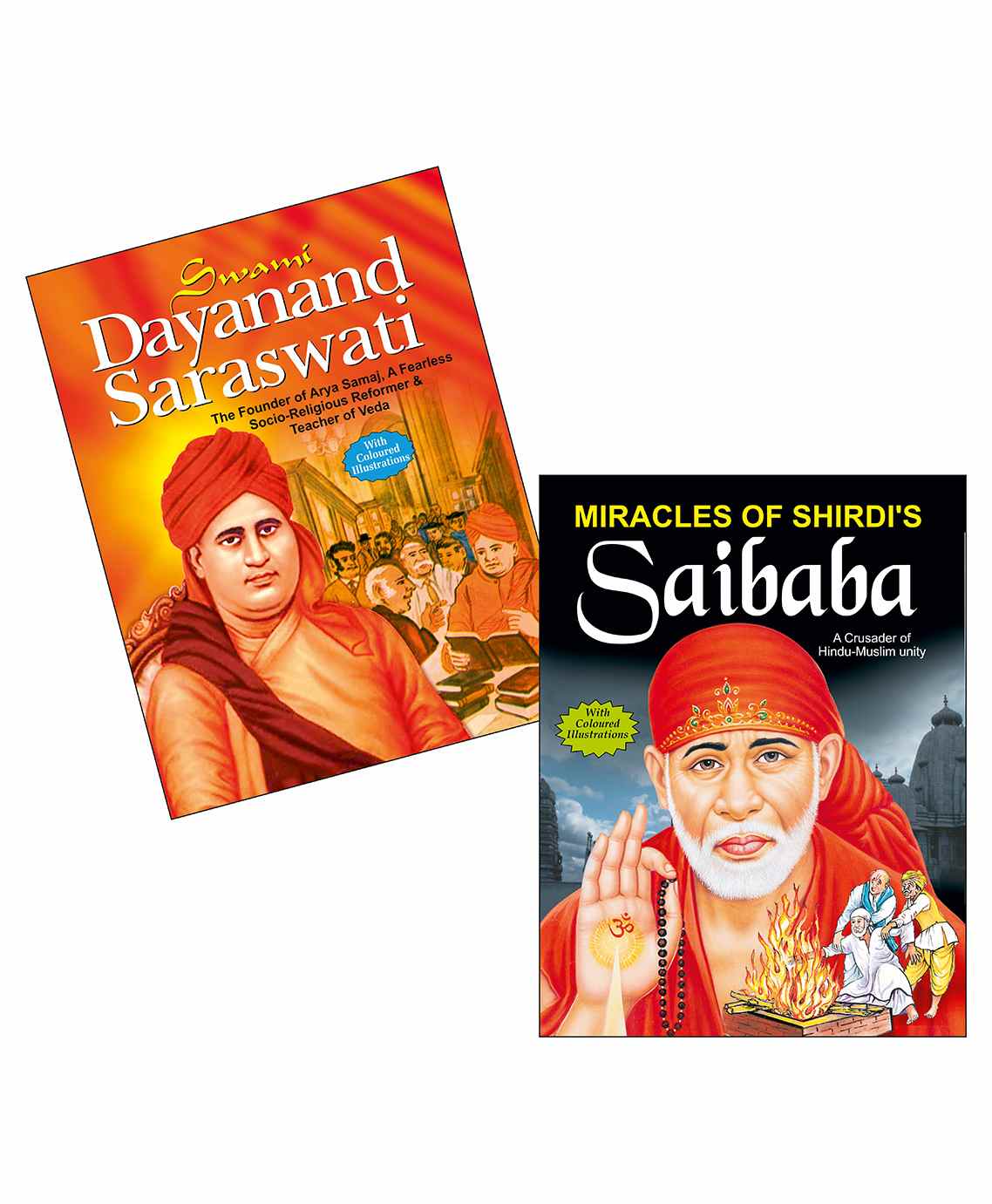
He had tried to reform society with a clean sweep, which was again need today. The split had been a long time in the making, having been a topic of discussion between Swami Dayananda and Swami Chinmayananda for some time. He advised his countrymen to direct their energy towards betterment of mankind as a whole and not waste away in unnecessary rituals. His beginnings, his spiritual developments, his teaching and his methodology, much of it in his own words, are captured in word and image in this book. He began asking questions about life, death and the afterlife to his parents to which they had no answers. He travelled the country challenging religious scholars and priests to discussions, winning repeatedly through the strength of his arguments and knowledge of Sanskrit and Vedas.




